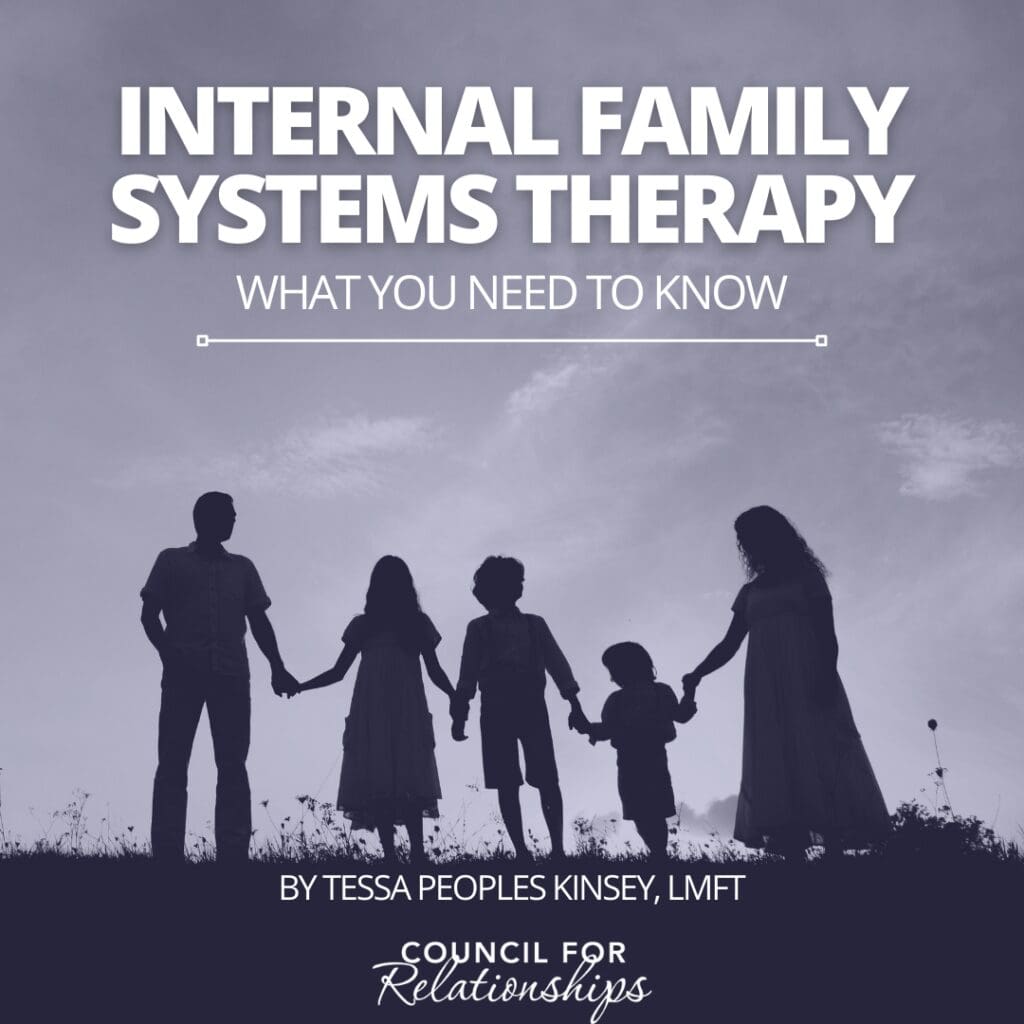Internal Family Systems Therapy: What You Need to Know
Internal Family Systems Therapy (IFS) helps us understand the mind as a collection of different “parts.” Each part has its feelings, roles, and ways of interacting. This approach shows that our inner conflicts—like feeling torn or overwhelmed—come from different parts within us, each trying to protect or help in its way. Many people find that this insight deepens self-understanding and empowers them to face challenges with greater compassion and clarity.
In this blog, we’ll examine the basics of IFS, including the different parts of us and how this approach can help people connect with their core Self. Whether you’re curious about IFS, wondering if it might help your mental health, or just want to learn more, this introduction offers a glimpse into the potential of Internal Family Systems Therapy.
What is Internal Family Systems Therapy?
Internal Family Systems Therapy views the mind as a system of parts—different parts of our personality that affect each other and our interactions with others. Family therapist Richard Schwartz developed IFS after noticing that many patients described themselves as having “parts” that conflicted with each other. He realized he had similar parts within himself.
IFS uses systemic ideas (how parts impact each other within a more extensive network) to explore these inner parts, also called personalities or sub-selves. IFS has become a well-known approach in talk therapy, couples therapy, and family therapy.
One unique goal of IFS is to achieve self-leadership—helping clients connect with their “Self,” the core part of them that can guide other parts toward healing. IFS works to create harmony in the mind by recognizing all parts, especially those with troubling or protective behaviors, and helping them work together. This balance helps clients manage a wide range of mental health issues like anxiety, depression, and even borderline personality disorder over the long term.
Who Can Benefit from Internal Family Systems Therapy?
IFS can boost mental and emotional well-being and has been shown to reduce symptoms of anxiety and depression. Unlike some therapies, IFS can be short-term and evidence-based, making it practical for people with specific goals and those seeking more profound healing. People who have experienced trauma (distressing or difficult events), self-sabotage (behaviors that block personal success or happiness), low self-esteem, shame, or difficulty making decisions may find IFS helpful.
Clients with various mental health conditions benefit from IFS, including those dealing with substance abuse and eating disorders and those using cognitive behavioral therapy (CBT) combined with IFS. For some, IFS therapy sessions allow them to explore parts of themselves that affect their thoughts and behaviors, especially those related to negative thought patterns or recurring struggles. IFS also pairs well with couples therapy by helping partners understand each other’s inner parts, which can strengthen family dynamics.
What Are the Different “Parts” of Internal Family Systems Therapy?
Our inner system is complex; some people may have up to 17 distinct parts. These parts are usually divided into three main groups:
- Managers: These parts manage daily life, aiming to prevent past pain from resurfacing. Managers help us stay organized and focused by creating routines or behaviors that protect us. They can be strict or perfectionistic to keep us safe.
- Exiles: Exiles live deep within us and often carry unresolved pain from past trauma. They may surface only in certain situations and can feel overwhelming, sparking intense emotions when triggered. These parts may hold shame, sadness, or fear.
- Firefighters: Firefighters act quickly to escape pain. They often rely on coping strategies like using substances, overeating, or other impulsive behaviors to distract from distress. Firefighters are reactive, stepping in when exiles’ pain becomes hard to handle.
While managers and firefighters are protective, they can sometimes create challenges. For example, when managers can’t stop exiles from feeling triggered, firefighters may respond with impulsive actions like alcohol or drug use, which can lead to other issues. IFS therapists help clients understand the motivations of these parts, fostering compassion for each part’s role.
In early IFS sessions, therapists help clients connect with their managers parts to understand how they took on these roles. This helps clients build self-awareness and appreciate how their parts have tried to protect them.
What Makes Internal Family Systems Therapy Unique?
In IFS, everyone has a “Self”—a central part of us that represents our true identity. The Self has curiosity, compassion, calmness, confidence, connection, clarity, courage, and creativity. When the Self leads our inner system, we can live more balanced and peaceful.
This focus on self-leadership makes Internal Family Systems Therapy different from other forms of psychodynamic therapy or cognitive behavioral therapy (CBT). IFS works by helping clients connect to their Self so they can manage the various parts within them more effectively. The belief that everyone has this core Self makes IFS empowering, and many clients find the journey spiritual or soulful.
Many clients are surprised to learn that there are “no bad parts” in IFS. Every part has a purpose, aiming to help or protect us, even if its strategies can be unhelpful. IFS therapists often emphasize that these parts develop their roles to make sense at some point in the client’s life. By helping clients understand the positive intent behind each part, IFS creates a safe space for all parts to feel heard, understood, and valued.
Lessons from Working with Clients in Internal Family Systems Therapy
From working with IFS, therapists learn that each part of us exists for a reason, even if its actions seem unhelpful. Often, parts take on “stuck” roles to protect us, repeating behaviors that were useful in the past but may no longer be helpful. Viewing these parts with compassion helps us understand that their actions once made sense, even if they no longer do.
IFS therapists believe in “no bad parts” because all parts contribute to who we are. By respecting each part’s role, clients can release shame or guilt around certain behaviors or thoughts. This gentle approach allows clients to experience real change, especially with long-term IFS work. By honoring each part, clients find healing, growth, and new self-understanding.
IFS continues to help people overcome a wide range of mental health conditions and works well with other mental health services like family therapy or couples therapy. Whether looking for a therapist who understands Internal Family Systems, seeking help with a specific mental health condition, or wanting to explore different parts of yourself, IFS provides a welcoming path to self-discovery.
About Philadelphia Therapist Tessa Peoples Kinsey, LMFT
Tessa Peoples Kinsey is a Staff Therapist at Council for Relationships who specializes in Internal Family Systems Therapy and supports clients through challenges like anxiety, depression, trauma, and relationship issues. Her practice is rooted in a compassionate, evidence-based approach that empowers clients to explore their inner world and build self-leadership to navigate life’s challenges. Tessa works closely with individuals, couples, and families to address a wide range of mental health issues, from self-sabotage to substance abuse and beyond.
Tessa provides a safe and supportive space where clients can connect with their core Self and gain insights into how their different “parts” affect their thoughts, feelings, and actions. Through Internal Family Systems Therapy (IFS), Tessa helps clients build a balanced, resilient mindset by understanding each part’s role in their mental and emotional well-being. Whether you’re looking for online therapy, in-person therapy, or a combination of both, Tessa is here for you.
If you’re interested in exploring IFS therapy, working through negative thought patterns, or developing a stronger family dynamic with a skilled therapist, contact Tessa to see if her approach fits your needs and budget.
Find a Therapist Near You in Philadelphia
Your mental health and well-being are our priority. Visit our Therapist & Psychiatrist Directory to find a therapist who meets your needs and budget for individual, couples therapy, family therapy, and psychiatry services.
If you are experiencing an emergency, please contact 911 or your nearest emergency services.
More Expert Voices: Exploring Internal Family Systems Therapy
Are you or a loved one looking for support with mental health conditions like anxiety, depression, trauma, or self-esteem challenges? Council for Relationships offers a wide range of mental health services, including Internal Family Systems Therapy (IFS), which provides a powerful path to self-discovery and healing.
Our experienced therapists, including Tessa Peoples Kinsey, LMFT, provide professional guidance to help individuals, couples, and families address emotional and cognitive challenges. Whether dealing with eating disorders, borderline personality disorder, or just seeking improved mental health, our experts are here to help you find balance and healing.
Stay connected with the latest in mental health therapy, IFS techniques, and approaches to well-being. Sign up for our mailing list to receive updates on therapy techniques, support groups, and expert mental and emotional wellness advice.


